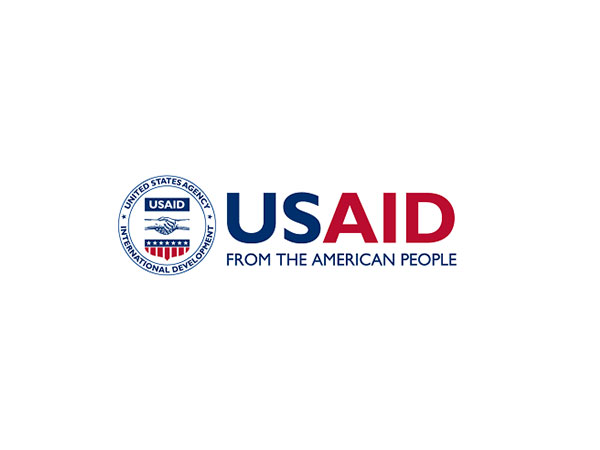US investments in Nepal is not a product of any geopolitical dynamics: USAID chief

- Country:
- Nepal
The suggestions that America's investments in Nepal are guided by geopolitical consideration stems mainly from the misinformation and the elements that try to seek polarisation and divide people. the Administrator of the US aid agency has said, insisting that the American support is the result of its commitment to the welfare of the people of the Himalayan nation.
Addressing a press conference here on Wednesday, USAID (United States Agency For International Development) Administrator Samantha Power said that the suggestions that US support to Nepal is guided by geopolitical considerations stem mainly from the misinformation and the elements that try to seek polarisation and divide people.
Stating that the US-Nepal partnership in a number of areas has continued despite profound changes in the world’s geopolitics in the past, she said that the history of wide-ranging partnership that the two countries have engaged in the past 75 years speaks for itself.
“The investments by the United States in Nepal is not the product of any geopolitical dynamics. It is the product of the United States’ commitment proven decade after decade after decade to the welfare of the people of this country. And we get a lot of this partnership, friendship as well,” she said.
“There is no question, of course, that geopolitics shift. They shifted, you know, during the Cold War; they shifted after the Cold War. Now, there are different geopolitical dynamics. It serves as the backdrop to anything that any country does anywhere in the world. But I would focus on the work we do together, the impact of that work…,” she said.
In addition to the USD 500 million Millennium Challenge Corporation (MCC) compact agreement to build a cross-country transmission line and upgrade roads, the US government last year reached a USD 659 million development objective agreement with Nepal.
The MCC is a bilateral United States foreign aid agency established by the US Congress in 2004. It is an independent agency separate from the State Department and USAID.
Ahead of Power’s visit, Deputy Secretary of State for Political Affairs Victoria Nuland visited Kathmandu and urged party leaders to be cautious while dealing with neighbours, particularly on economic partnerships.
Meanwhile, Nepal's media reported that a third US official is set to visit Kathmandu soon.
Afreen Akhter, deputy assistant secretary of state in the Bureau of South and Central Asian Affairs (SCA) for Nepal, Sri Lanka, Bangladesh, Bhutan, and the Maldives, as well as the Office of Security and Transnational Affairs, is set to visit Kathmandu, most likely on February 14.
On Tuesday, Power announced up to USD 58.5 million to advance democratic progress in Nepal. A section of people including politicians has been suggesting that these US investments in Nepal are guided by geopolitical considerations.
There was even a street protest against the MCC Compact Agreement last when the government was preparing to ratify it through parliament.
Nepal’s Leftist political parties have been opposing the pact, saying it was not in the national interest and that it was meant for countering China. “I think the depth, length and the scope of the US-Nepali relationship speak to the enduring friendships and partnership between our two people and certainly from the US side our enduring commitment to dignity and the opportunity that every Nepali person seeks for himself and for development,” she further said.
“…the fact that more and more we do get this question…that the question marks have been raised. You know I think some of that stems from--a problem we deal with in the United States as well–, which is rampant misinformation. All around the world, not just in Nepal, more and more polarisation, you know people sometimes find issues that divide us rather than those that unite us. And, then you know, sometimes people get confused,” she added.
Power said that the increased support of the US government to Nepal is also guided by the historical responsibility to help countries like Nepal.
“We believe in the United States that it is in the long-term interests of American people for democracy, democratic institutions to be stronger for citizens to be able to access social services, health care, education for everyone in the world for the next generation to be better off than the generation before,” she said.
“And now, because of climate change, we also feel historical responsibility because we in the United States have been a major emitter of carbon. And, countries like Nepal that have very little to contribute to global warming are feeling the effects of that. So, that too gives us a sense of responsibility to make these investments.” Power, who is wrapping up her Nepal visit on Thursday, held a meeting with Prime Minister Pushpa Kamal Dahal Prachanda, Deputy Prime Minister and Finance Minister Bishnu Poudel, Foreign Minister Bimala Rai Poudyal, civil society leaders. She also visited a few places in Kathmandu Valley to see the progress of US-funded projects during her stay in Nepal.
Power said that she had a productive discussion with Prime Minister Prachanda. She mentioned that she had raised the issue of taxation, the regulatory environment that is hindering foreign direct investment in Nepal.
(This story has not been edited by Devdiscourse staff and is auto-generated from a syndicated feed.)
ALSO READ
Kathmandu ranks top on list of worst AQI cities in world
FACTBOX-How Elon Musk's pay package compares to other top CEOs in United States
Top medal contenders at the Paris Olympics: United States and China predicted to dominate
UAE and French Presidents discuss bilateral relations and latest regional and international developments
Zydus Lifesciences introduces generic treatment for overactive bladder in the United States










